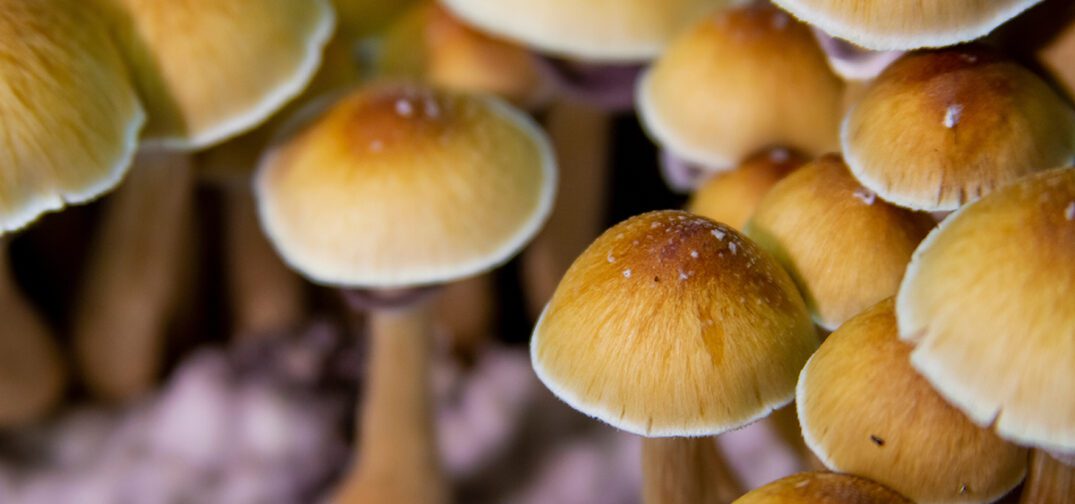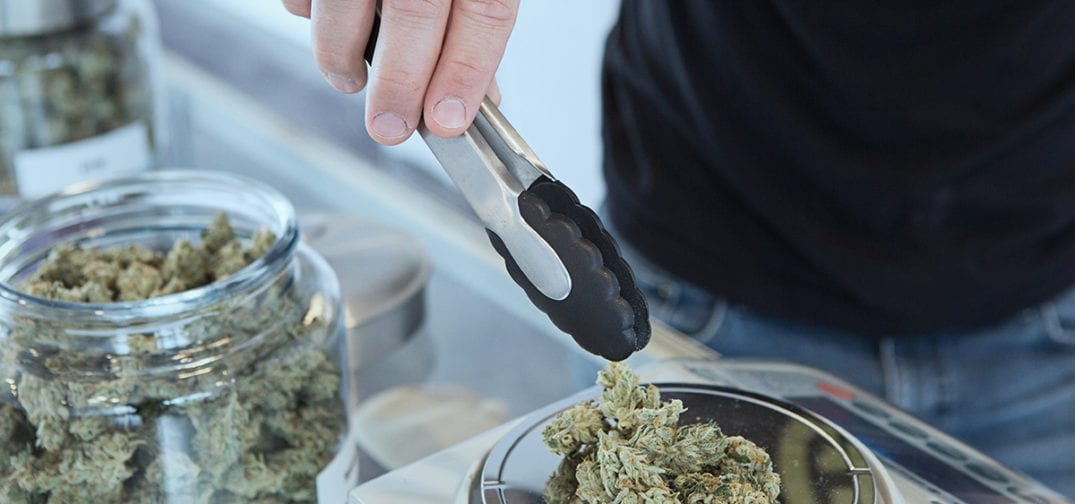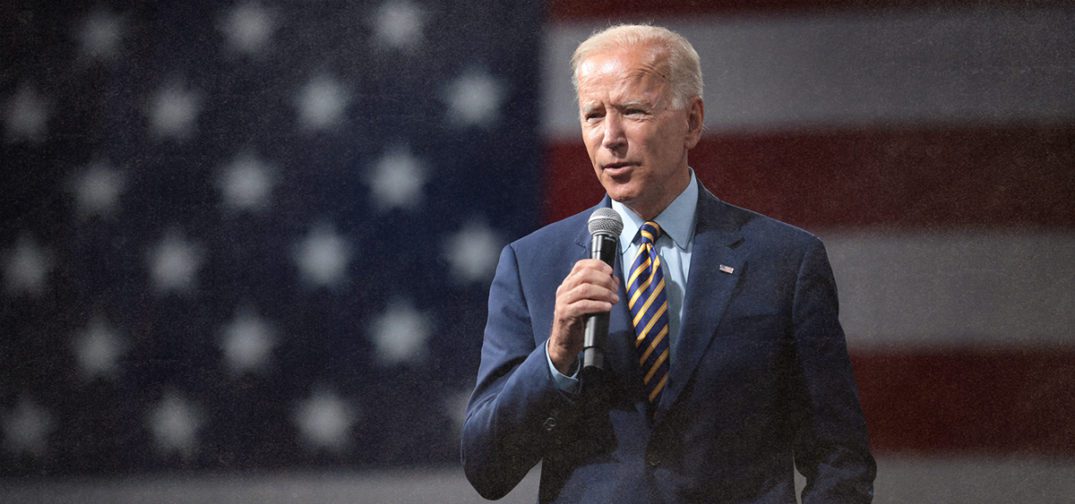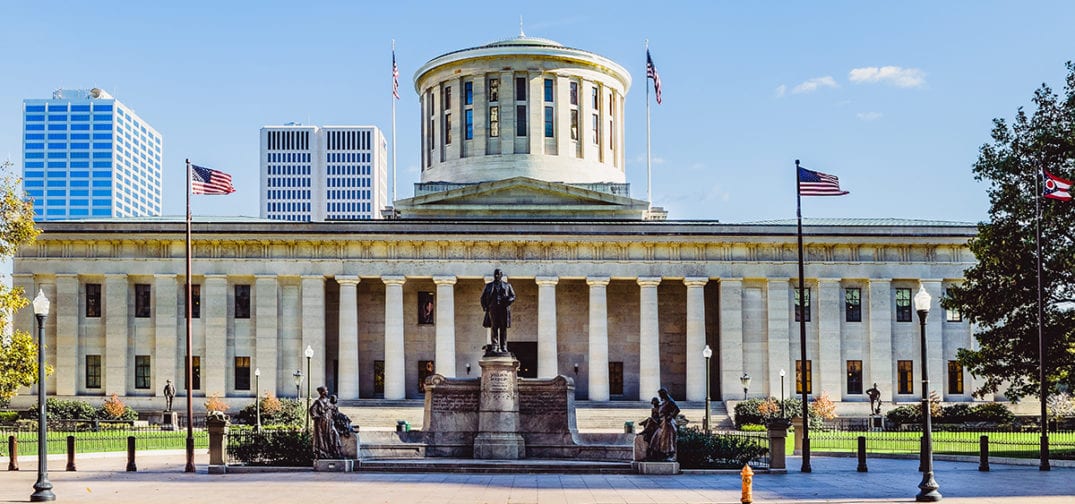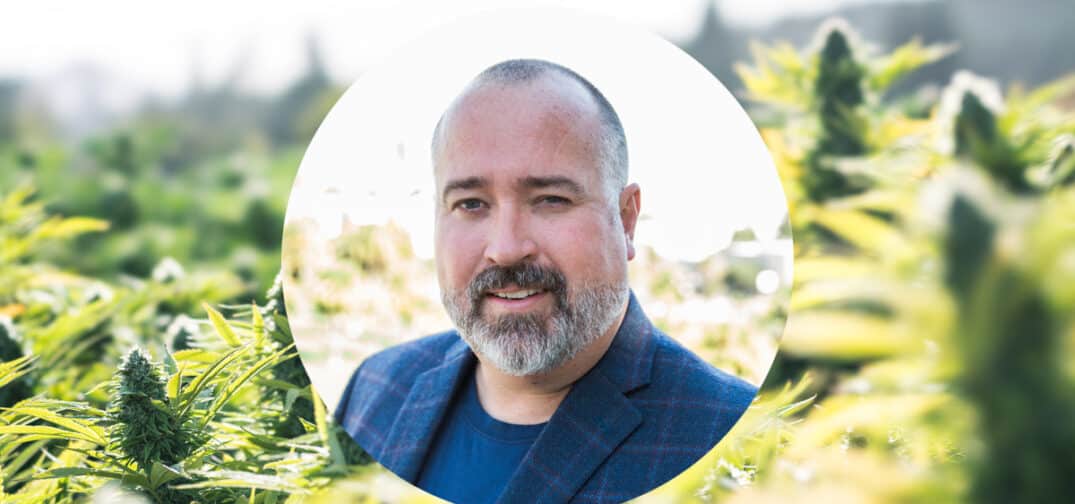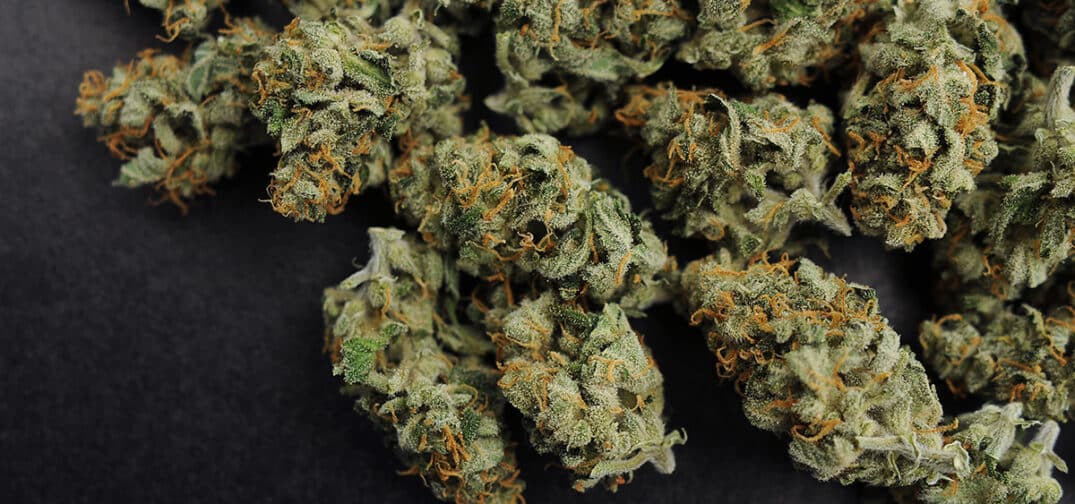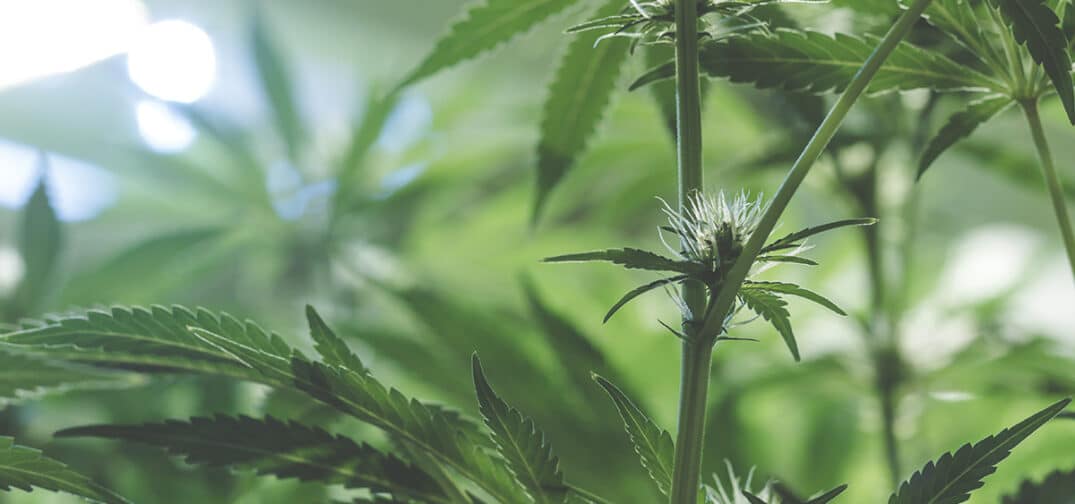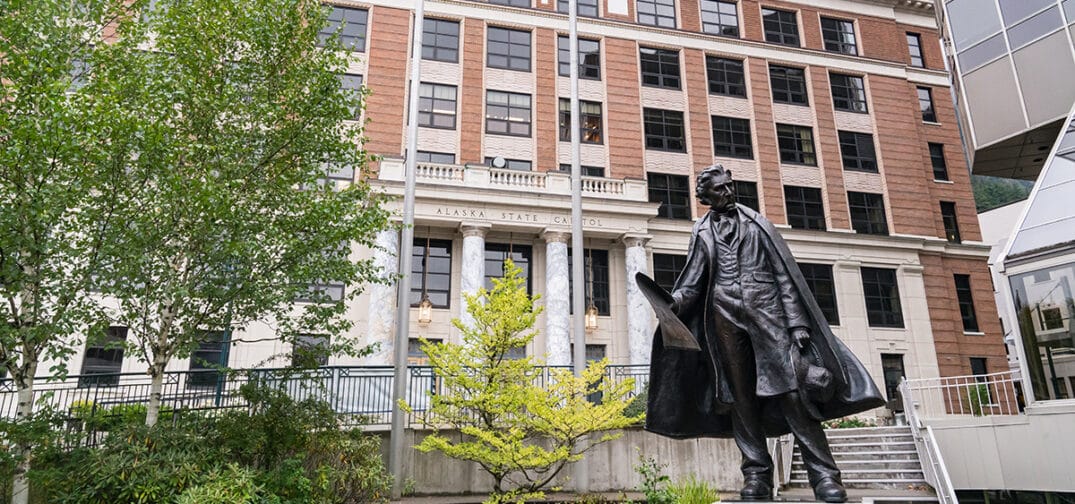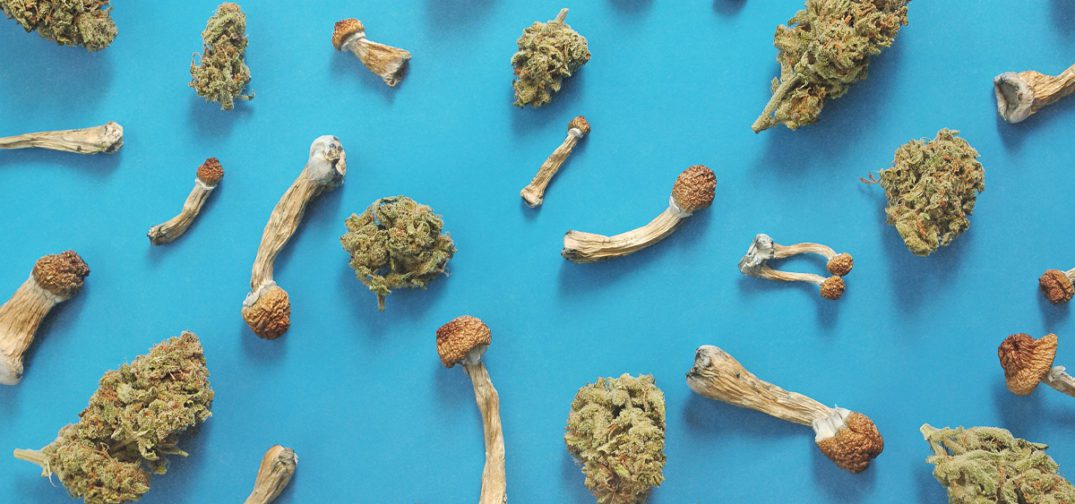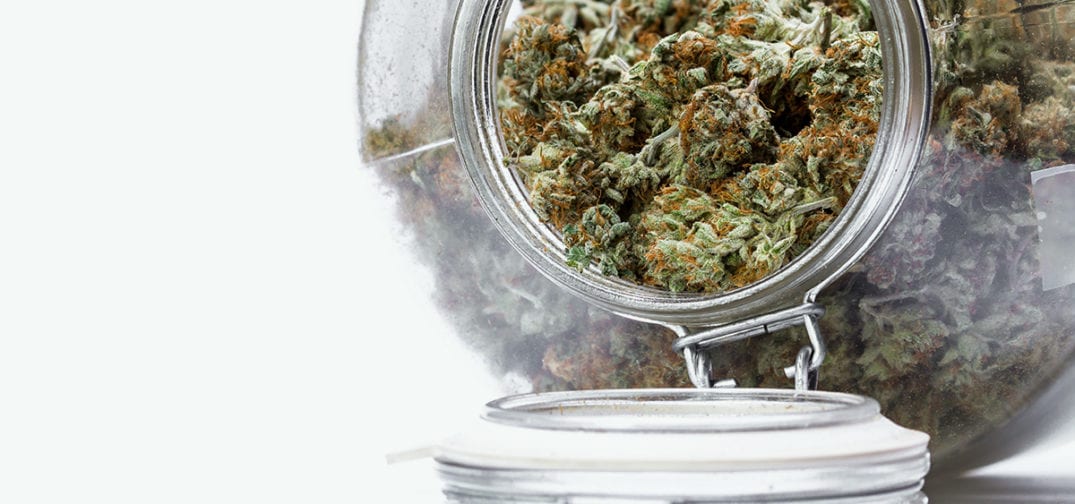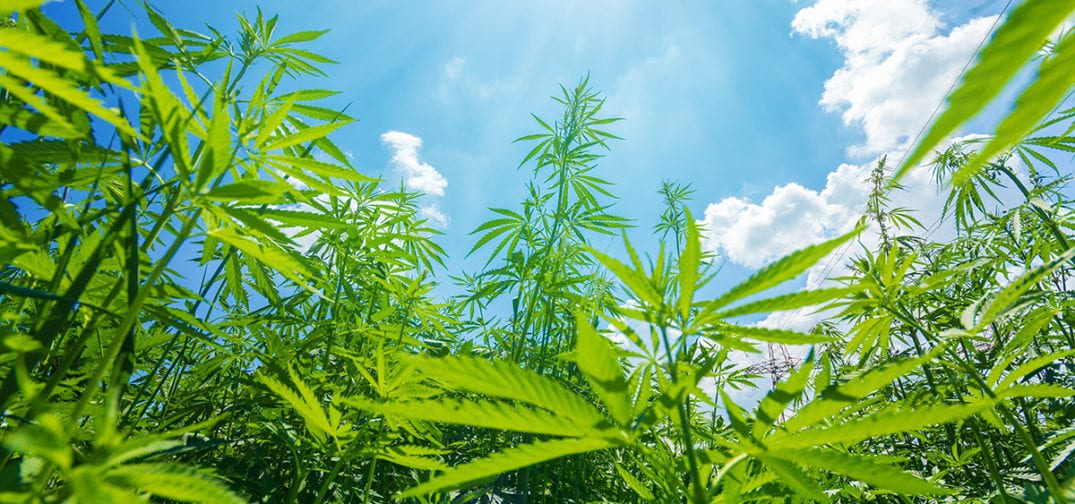Brian Applegarth is the founder of Applegarth Strategies, an agency that operates at the intersection of cannabis and travel. He’s also the head of the Cannabis Travel Association, leads the Cannabis and Task Force for the California Travel Association and Destinations International, serves as an industry consultant, and holds a certification as a Ganjier cannabis sommelier—a man of many talents and extensive expertise. In this episode, host TG Branfalt connects with Applegarth to explore the evolving landscape of cannabis tourism, delve into the unique challenges and opportunities within the industry, and revisit how the landscape has transformed since Brian’s last visit to the show. Listen to the podcast below, or scroll down for the full transcript!
Listen to the podcast:
Full transcript:
Editor’s note: this transcript was generated automatically and may contain errors.
Commercial:
The Ganjapreneur Podcast is made possible by over 500 cannabis industry service providers in Ganjapreneur’s Cannabis Business Index. At some point, every plant touching brand experiences the stigma that many industries still have to toward cannabis going strong. Since 2015, our business index is the most comprehensive and frequently visited directory for cannabis friendly services on the internet, saving you the time and hassle of sifting through uninformed and unwelcoming providers with categories for everything from business financing, to extraction equipment to interior designers and public relations. You’ll find every kind of specialist and business service you could ever need. Check out the business index today at ganjapreneur.com/businesses.
TG Branfalt:
Hey there, I’m your host, TG Branfalt, and this is the ganjapreneur.com podcast where we try to bring you actionable information and normalize cannabis through the stories of ganjapreneurs, activists and industry stakeholders. Today I’m joined by Brian Applegarth. He is the founder of Applegarth Strategies and Agency specializing in the intersection of cannabis and travel. He’s also the founder of the Cannabis Travel Association and leader of the Cannabis and Task Force for the California Travel Association and Destinations International, an industry consultant and a certified ganji cannabis sommelier guy with a lot of titles, a lot of experience. Brian, how are we doing?
Brian Applegarth:
Doing great, TG. Thanks for having me on.
TG Branfalt:
Real excited, man. I mean, you were one of the earlier guests on the podcast, probably back in 2020, 2021, so a lot has changed since then. But before we get into that and how that’s affected the cannabis tourism industry, tell me about, remind listeners about you and what you do.
Brian Applegarth:
Yeah, I mean, essentially I’m a cannabis travel and tourism subject matter expert starting with data. So my work revolves around the cannabis travel audience in the United States, which as of last year accounted for about 72 million Americans. And I work with destinations. A lot of times I’m working with the travel economy, so typically destination marketing organizations will bring me in to help develop strategies that can really cater to this cannabis travel audience that exists today. So yeah, I’m pretty much just passionate about cannabis tourism and travel and moving that conversation forward.
TG Branfalt:
In the couple of years since we’ve last talked, what is new in cannabis tourism? I know different states have gone online and each have sort of different laws and have include any provisions making tourism easier. What’s been going on?
Brian Applegarth:
Yeah, well, I mean, I believe we’re at an inflection point of really the coming alive of the cannabis travel economy or the experience economy. And I really do look at cannabis travel and tourism as its own industry. For example, the travel industry in California is about 140 billion industry. The cannabis industry of California today is about a 6 billion industry. So as cannabis experiences start taking off in this new kind of legal landscape, what does that mean for the tourism and travel economy and how is cannabis integrating into that visitor ecosystem from marketing to hotels, to airports, to rental car companies and beyond? So really where we sit today are cannabis lounges. I prefer actually cannabis consumption spaces, I believe is more accurate. We do have, of course we have lounges. Many times people think in terms of smoking and inhalation, but the truth of the matter is it’s rapidly evolving with cannabis consumption spaces, including beverage bars, infused culinary dining.
There’s a cannabis spa that exists in California today. There’s different cannabis retreats, wellness retreats. There’s of course cannabis events, which are a really important part of travel. So it’s really expanding in a very innovative way. And the exciting part is you’re seeing this come alive in these more mature adult use recreational legal destinations, and you’re seeing buy-in from both the travel industry and now you’re getting in the cannabis industry. Some more sophisticated brands, shops, lounges and beyond that are really starting to buy into that tourism economy and understand the difference between a resident spend versus a visitor spend and why that matters.
TG Branfalt:
Well, there’s a couple of things that I’ve noticed here in New York. One, they do allow for sort of social use spaces, but haven’t rolled out any regulations or anything like that experiencing. Is that something that a lot of states and cannabis companies are experiencing these late roll-outs?
Brian Applegarth:
Yeah, I think people are finding their footing. I think depending on the destination and just depending on the landscape from a local state level, there’s this kind of patchwork, which we’re all familiar with in the cannabis space. I kind of call it the wet county dry county model and what that looks like for cannabis. I live in California, so here I would guess that we not guess, we have approximately, I’d say between 60 and 80 cannabis consumption spaces now in the state of California. And again, that runs the gamut from a cannabis spas to lounges, indoor places, outdoor places, there’s lounges that have food service, there’s lounges that have this little oasis area with ponds and parrots in the back, ones that have, there’s a lot of stages. So you’re seeing programming starting to come alive, like with everything from poetry to music performances to burlesque to comedy and beyond, which is a really exciting space to watch, evolve.
You see a lot of lounges that are trying to figure it out. There’s a lot of focus still on the transactional side of cannabis, and we understand why. Obviously there’s a lot of taxes and barriers right now to having a successful business, but we are seeing learnings and people starting to develop more compelling models to really serve that visitor experience. And as that happens, you’re seeing the travel economy with the massive size and reach starting to wrap their arms around not all cannabis businesses, but the cannabis businesses and brands that are investing in that visitor economy into the travel economy. And they’re looking at themselves not just as a retail shop selling weed, but as an attraction, providing an experience. And that obviously dips into this consumption lounge space, but then it goes into the private kind of models where people are having these getaways, these infused culinary dinners, which is a really exciting kind of space as well.
TG Branfalt:
And you had mentioned marketing and it’s very limited, and I’ve just had this discussion with another operator on this podcast about marketing and how disparate state laws create a sort of challenge for businesses to market. How are cannabis excursions just the sort of destinations, if you will, how are they marketing within these frameworks?
Brian Applegarth:
So I mean, the most sophisticated people that are engaged in this visitor economy strategy space are one, starting with the data. Who is the cannabis travel audience? What are the four different archetypes? And the four different archetypes that I’ve been measuring in partnership with MMGY travel intelligence since 2019 are the canna curious traveler, the cannabis wellness traveler, the cannabis connoisseur, and then the ceremonial traveler. So people that use cannabis in specific ritual and ceremony, which is a really fascinating archetype. I believe that’s the biggest differentiator for cannabis as a travel experience product in the long term because it really focuses around wellbeing and what does it mean to have an entheogen and be microdosing cannabis to enhance that destination travel experience. So it starts with the cannabis travel audience data, and then it’s understanding that you have these standalone cannabis experiences which happen in cannabis shops and lounges and cannabis, let’s just say those three are kind of the three temp poles right now.
But then you have of course, these private events that are also kind of these confused, culinary, et cetera. But then you have cannabis as it integrates into the greater destination brand and the greater destination experience. So the more sophisticated cannabis brands and operators are looking at what destination am I in, what is the power of the travel economy and what is the destination brand, right? Because every destination has a brand that they promote for visitation, like in Palm Springs, it’s find your Oasis in San Francisco. It’s got a different bend in Sonoma County or in Mendocino County. It’s got a different brand with literally brand guidelines. So the more sophisticated cannabis brands and operators are starting to look at what is the community I’m a part of? What is the brand, what is the tourism ecosystem, and what does it mean for me to play a part as part of that community?
And what are all the benefits? And it’s really exciting to see this happen. If you actually look at the history of prohibition with alcohol, and you look at the brands that really excel, it was brands that invested in visitor economy strategies, travel industry strategies, look up the history of the alcohol bottle on the trains and what that did for Jack Daniels, Jim Beam and some of the big brands today. And it’s that cross industry strategic partnerships and marketing strategies where that visitor economy, it’s not just the travel audience, it’s all the partnerships that exist in the travel economy that are going to propel the brands that have the appetite for that kind of investment and attention into building that. So as far as that standalone experience, now, another way that cannabis is integrating into the travel economy, the data is showing as of last year that the cannabis travel audience, about a third of ’em, are really starting to understand the concept of pairing cannabis with destination experiences while in market.
And this trend is increasingly known as effect pairing cannabis, essentially pairing cannabis effects with food, art, nature, et cetera. So it’s cannabis as a precursor to your setting or to your environment or to your travel activity. And increasingly the sciences coming out of those cultivars that have an abundance of lemonene versus myrcene and what that means for the consumer, the traveler, as a precursor to a hike on the coast or a precursor to a Michelin star meal. I often say cannabis is the new vermouth, right? Cannabis, the right kind of cannabis can accentuate your palate flavor, taste, and fixture, as well as stimulate your appetite. And that’s not all cultivars, that’s only certain cultivars. So those are increasingly going to be the pre-dinner aperitif. And I believe that we’re entering into that era of not just cannabis experiences and lounges and events, but the notion of pairing cannabis to enhance your travel itinerary or your travel experiences. So that’s really exciting.
TG Branfalt:
What of consumers are you seeing? Is it predominantly young people? Is it predominantly older people? What does that look like?
Brian Applegarth:
Yeah, absolutely. Well, the cannabis travel audience, the short version is when you look at the cannabis travel audience versus the average active leisure traveler, the cannabis travel audience travels more often, stays longer, and spends more while on a destination. And this is something that the travel industry is watching closely, right? Because this is economic impact at the end of the day, and on the cannabis through the cannabis lens for shops and lounges, this is an opportunity to capture that economic impact. And I’ll tell you, when you’re in a visitor mindset of when in Rome, you’re going to drop that extra spend because you want to smoke that blunt from the Emerald Triangle with the best weed in the world, or you’re going to buy that premium hash and you’re going to sit and look at the ocean and smoke some weed while the sun goes down, or you’re going to get a great cracked beverage that is locally made.
So it’s all about placemaking. Also, the average spend that we’re seeing with the average cannabis traveler is about 2,500 bucks a year. So that’s kind of the money on the table. As far as the generational breakdown, we see a very strong attraction to this with Gen Z, right? Surprise surprise, where about 70% of Gen Z say they have an interest in participating in at least one cannabis related activity while on vacation. No kidding. So they’re choosing destinations where cannabis can be a part of that destination experience. About 56% have kids about 28%, which I think is an interesting data point. And again, we’ve been measuring this audience since 2019 with MMGY Travel Intelligence year over year. It’s part of their report that’s the portrait of the American traveler. It’s one of the modules that we consistently are working with. So as far as interested in cannabis activities, what they’re looking at this cannabis interested travel audience, again, in the US it’s about 72 million people, about 37% of the active leisure travel audience.
Number one is they want to visit a dispensary. They look at visiting a modern day cannabis shop as an attraction. And I work with Planet. I kind of cross over with Planet 13 because Travel Santa Ana is one of my clients. And when I visited their shop out in Vegas, I chatted with some of the staff out there and they were saying that 30% of their visitation will come in and not even buy, but they’re just there to look at the scope of what exists. So the then becomes how do you convert a spend from those people and not leave that money on the table? A perfect example of visitor economy strategies and how to capture that. So visiting a cannabis dispensary is the first activity of interest. The second one is trying A THC infused edible. The third one is trying A CBD infused edible, really, right?
Which shows that can of curious, that can wellness traveler. The fourth one is visiting a cannabis lounge or consumption space. And then the fifth one is having a spa treatment. What a concept to actually visit a cannabis infused spa. And I don’t think it’s surprising because the best highest form of cannabis travel and tourism today is going to reflect the capacity and the capabilities of the cannabis plant itself, which is a therapeutic ancient medicine plant that manifests in all kinds of ways, from topicals to beverages, to edibles to culinary, to the nutrition of a hemp seed, and yes, premium hash and amazing flour. So it’s super exciting because I still think on the travel side and on the cannabis side, people are finally starting to wake up to the expansive toolkit that cannabis and quite frankly, hemp is, and how that’s going to integrate into the global travel economy, which is an incredible industry to tap into if you’re a cannabis brand shop lounge event that has that vision and that recognizes to integrate into a mature industry is going to benefit your growth. So that’s where my agency works is at that intersection.
TG Branfalt:
And so what about, you mentioned the sort of worldwide and growth in the tourism industry. How are you and others focused on tourism connecting with non-cannabis businesses to get them on board? What have been some successes and some challenges in that role?
Brian Applegarth:
Sure. Well, I mean, I jumped into this in 2013. I just hit like 10, 11 years in focusing on cannabis travel and tourism, and it went from crickets in the room to now today. Well, that last kind of seven year stretch, six, seven year stretch was all about case studies, basic education about what is cannabis, really kind of debunking all the reefer madness stigmas and talking in a very fact-based way about cannabis and how it was part of the US medical Pharmacopia, and it was found on pharmacy shelves talking about the research and study of O’Shaughnessy and what those findings were early on when cannabis was studied over in India using ancient kind of cannabis case studies to reframe and actually bring out the truth of what kind of this plan is capable of and why it matters in travel and tourism today. So a lot of education data and case studies, the data really hit an inflection point in 2019. That study we did at the national in the United States, it was a national scale, was the first ever study globally on the cannabis travel audience, which is where the conversation begins. So now there’s an audience to reach, how do they choose their destinations, how do they spend and how do they move about a market when they’re visiting a place? So it’s an industry, it’s a business about how do we engage this audience and how do we evolve to meet the moment and to integrate these experiences within the travel economy.
Obviously the evolution of trends like this effect pairing trend and the data showing that the audience has this IQ that goes above and beyond, Hey, let’s go to a cannabis event, where now they’re looking at it as it gives you a dotted line to the other segments of travel, like arts and culture. So now there’s data that shows that cannabis has a relationship that drives economic impact and interest to other parts of the travel economy, whether it’s arts and culture or restaurants and culinary, right? It’s that cannabis as a precursor to the Michelin Star meal, which is very different than the cannabis infused dining experience where you’re sitting there with the plant being integrated into the meal. So understanding how those are different is a really interesting development of trend. The beautiful part is policy is slowly inching along too. In California this year, it looks like we have two bills that could really move the needle.
We have the Cannabis Cafe bill, which will basically bring in some food capacity as well as ticket sales and a few other things that really elevate the retailer above and beyond shop or a lounge above and beyond a lounge where you have to kind of play and figure out creatively how to make this interesting. So hopefully that Cannabis Cafe Bill will pass. We also have the Cannabis Catering Catering bill that actually the origin of that bill is the Cannabis Travel Association. We worked hard to look at the Alcohol catering license in California, and the first draft was doing a cannabis version of that. And the reason that that is so important is because it gives the hotel industry of California and the hospitality industry of California the ability to have a relatable license where they can be like, okay, I understand that that’s a very clear legal pathway to having cannabis catering at a wedding on my property.
So it kind of takes all that guesswork and that gray area out and normalizes cannabis and makes it accessible so we can keep normalization and create a new distribution point in hospitality and tourism specifically. So the policy evolution’s awesome. A lot of my work in the past four or five years has been with what I think, well, I mean probably biased because it’s where I live and breathe day to day, but it’s with destination marketing organizations like San Francisco Travel Visit Oakland, visit Mendocino County. I’ve worked with about 20 destinations at this point doing different scopes that all center around the cannabis travel audience and what is the strategy. And typically, there’s a few phases to that. There’s of course, the foundational education data. Let’s go ahead and get everybody singing, understanding what this is in a real factual way and the data behind it, and then there’s some destination development that needs to happen.
Sometimes that comes in the form of an experienced product, like if you look@thecannabistrail.com or if you go to the Visit Oakland website, you’ll see a trail that is an expanded version of the cannabis trail itself. You could look at Visit Modesto has a cannabis passport. So you see these different experience products where the destination is investing. Now, unfortunately, the cannabis industry and a lot of ’em are buried and stressed and trying to figure out how to survive, but they haven’t been able necessarily to really show up and meet the moment. There’s a handful that do. I’m kind of surprised with all the complaints about marketing and cannabis when these opportunities come with this powerful partnership that shops and lounges don’t make the space to really understand the gravity of what that means. Interesting. But there was a big inflection point this year where now we have the first ever cooperative marketing campaign happening in California between three different destinations that are coming together to market and to promote and to uplift the cannabis trail, which is a nine county trail in Northern California.
That is a cultural trail that kind of celebrates how cannabis has been part of California history and culture. The last thing I’ll mention that I think is exciting is, and I don’t think a lot of cannabis brands and businesses know this, but about two or three years ago, visit California basically awarded a poppy award, which is a big deal in the travel industry of California to visit. Modesto was a top three finalist for basically a marketing strategy that had to do with the cannabis passport last year visit. Oakland was a top three recognized destination for their cannabis trail and their cannabis program, specifically their campaign that was this four 20 choose equity travel, the Oakland Cannabis Trail, and that was a US travel award. So you’re seeing whether the cannabis industry is aware of it or not, the travel industry is picking up on this and understanding the importance of integrating and guiding and supporting the growth of cannabis brands, businesses, and experience creators that have the IQ and understand the travel industry and want to be part of that as an attraction. And that’s not everybody. So it’s figuring out, is your cannabis brand business interested in tapping into that tourism economy?
TG Branfalt:
And I do want to ask you, I know that organizations like Visit Modesto and Visit Oakland. Those are run by municipalities, but do you get any pushback or anything like that from say, chambers of commerce that in many states initially push back against cannabis legalization and oftentimes, typically don’t want to work with cannabis businesses once it is legalized?
Brian Applegarth:
So I mean, I’ve witnessed some of this in my world too. I mean, reefer madness is real, right? And there’s some super conservative people and some super conservative destinations. That being said, I think that I always approach it with meet ’em where they’re at and bring the data, the fact-based education and the case studies of people that they can look at their peers of the industry. And that is the formula that I have found in travel is that moves the needle. So it’s not about me trying to convince ’em, it’s me being a resource of information. And then as they continue seeing this evolve, they’re going to step into it when the time is right or they won’t. And I mean, I would argue that that is a poor decision as a destination because you should be promoting public safety, and that just doesn’t mean visitor safety.
It means safety of your hospitality industry. You should be supporting your hotel frontline staff, your hospitality frontline staff with understanding how to respond when visitors show up, or if visitors have potentially over-consumed, what’s your best practice as a hotel? This is like, I think it’s essential from a travel hospitality industry point of view to invest in the safety of your destination. I actually equate it to what happened during Covid Covid destination stepped in and took an amazing role in providing information on what was happening, how to deal with it, what are the guidelines today, all the masks, the little window shields, all the non-touch. There was a huge exercise in serving as a public service to your destination stakeholders. I believe at the most foundational level of cannabis travel and tourism, that information provider and public safety role is something that every destination, if you’re in a legal cannabis state, that means people are using consuming, buying, carrying cannabis, which means that your hospitality, your travel economy needs to be ready for whatever that means, right?
And we all know cannabis has this altering effect for the THC rich products. Yeah. So that reform, madness, stigma, it doesn’t bother me. I understand it’s there. I just think you got to be in service and really just bring the fact-based information and data to help move the needle. And then you’ll have the destinations raise their hand that really see cannabis as a differentiator or something that’s really going to become part of their destination brand visit. Oakland is a great example of this. So is Visit Mendocino County. I’ve also started working with Humboldt County Visitors Bureau, so the Emerald Triangle is obviously key. I’ve done some work with Hello Burlington, doing some education out in Vermont. So these destinations are definitely starting to look at this audience and the opportunity, and I think it’s a great time for any cannabis brand or business listening this podcast to start really thinking about what’s your plan?
There was a study that came out, a data point that came out from Whitney Economics. Beau Whitney does great data, and essentially it came out through Forbes in May, 2022. So it’s a little dated, but I think it’s worth bringing up here today, basically of the 25 billion of cannabis spend and revenue in the United States back in 20 22, 4 0.5 billion of that. So let’s just say 2020 5% was attributed to the visitor spend. Now, what’s interesting about that is for every dollar spent in the travel world, we talk about an incremental multiplier because visitors, they’re going to restaurants, they’re going to art galleries, they’re going on canoe trips and rafting, and so they are experiencing the destination and they’re spending in a very different way than a resident. So for every dollar spent in a cannabis shop, Bo quoted that about $2 and 80 cents multiplier is injected into the local economy. That’s significant, significant man. And it means that the cannabis tourism opportunity was a 17 billion opportunity for destinations. So if you’re a retail shop, knowing how much of that spend is a visitor spend and making some sense around that and how you’re going to partner with the travel industry and keep growing that and or maximizing the basket size in your shop that already exists. These are all strategies worth considering today because we are at an inflection point here.
TG Branfalt:
I do want to ask another question about barriers, because in many states, if you are a tourist or even countries, I go to Canada quite frequently where cannabis is legal for adult use, but there’s no real great place to consume. You can’t go into hotels, motels, even some RV parks that I’ve been to get a little salty when you light a joint. Are you seeing any evolution on this front with regard to just hospitality, just your sort of mainstream hospitality organization or companies?
Brian Applegarth:
Yeah, I mean, I really, I promote having a plan, right? Because there are people that like to inhale, whether that’s smoking or whether that’s vaping, which are both a little bit different. And then of course, all the other products that are beverages, edibles, all the other ways to consume topicals, et cetera. So I encourage hotels and resorts to say, are you cannabis friendly? And if so, what does that mean? Are you inhalation friendly or not? Do you have a dedicated place on your property where you can communicate in a very clear way to your hotel guests so they know what is and isn’t allowed? I’ve worked with a couple hotels where we’ve actually done bespoke programs where they offer cannabis delivery as a service amenity in their hotel.
And some of these hotels, the menu that we curate for the hotel approved menu are products that are five milligrams or less, and they’re all non inhalation. So now you have a product, and instead of turning it into a weird conversation where it’s all about where do I smoke? And now I’m cleaning the room and there’s an extra fee and it’s a negative, maybe there’s a bad Yelp review. This is all brand tarnish from a destination brand perspective or a hotel perspective. So if you work with a hotel to actually have a clear plan, partner with a lounge, make sure you pick a lounge or a shop in town that’s on brand for your hotel guest. I’ll remember one hotel I was working with, I was in there kind of secret shopping and talking to the valet and being, Hey man, we can I get some weed? And he was recommending a delivery that was unlicensed. And then of course, and this was before I worked with them, so I was identifying all the risks and gaps.
And the worst thing is you have a hotel where you have your frontline staff recommending a black market delivery or underground delivery that’s not licensed delivering untested products. I would actually say that the risk for you in that capacity by putting your head in the sand is your risk is exponential and unknown. Because if that unlicensed delivery is now delivering untested products to your guests that was recommended by your staff and something happens there like vape gate, how does that play out for you as a business that serves guests? Another problem I saw was you have deliveries show up where they walk in the lobby shop and they’re off brands. Let’s just say that they’re not part of a four or five star hotel and they’re parking their car in front of valet and throwing the hazards on. There’s no, so not having a plan is a route you could take.
I would argue that the risks are exponential and unknown, including brand tarnish on your hotel as well as your destination and potentially the health of your guests. So at what point do you start making a plan to be train your staff in this kind of thing? So yeah, I mean, those are some of the things that I saw. Another thing I saw was you’d have people that would use the cannabis in the room and they would leave their products on the table or whatever, and then of course, housekeeping or somebody would eat the chocolate, and all of a sudden you’re dealing with, so having a disposal program where you clearly tell people, if you don’t use your cannabis products, make sure you please dispose of them in the trash in this way or in this container is just another thoughtful way to put up the guardrails to make sure that you’re ensuring a safe place of work, a safe visitor experience, and you’re kind of mitigating all the risks and negative impacts that can come when you don’t have a plan or you’re not addressing it.
TG Branfalt:
So on your website, you have endorsements for many travel industry CEOs, you’ve mentioned many of them, such as Visit Modesto, visit Oakland, hello Burlington and Travel Santa Ana. Was it an uphill climb getting those organizations and organizations like those on board with cannabis tourism?
Brian Applegarth:
I wouldn’t describe it as an uphill climb. I knew that it would come. I just didn’t know when. So when I started in this, when I started jumping into cannabis travel and tourism, I knew that I was one of the first, if not the first, doing this in the travel side of the industry especially. And I knew that I needed to follow where leadership directed me, where they wanted me to apply my energy and my efforts and my brain power. And that was data and information and education. And over years, I’ve been attending travel industry conferences and been supporting the travel industry in navigating the cannabis and hemp discussion for 10 plus years now. And over that time, you develop relationships and trust. And also I understand how that industry operates, right? It’s very different than the cannabis industry, the travel industry. They literally have an annual marketing framework that the whole industry looks at through Visit California in this instance.
And the destinations international, they have membership from around the world, from Japan, a lot through North America, plenty of representation out of Canada, all across the United States. And they literally roll out a cannabis, or excuse me, a travel industry lexicon every year to talk about what’s being said at the national and international level. And this is because it’s a mature industry with leadership at the top that’s steering a really big ship. The legal cannabis industry is nascent, burgeoning, and still trying to figure out what we do as an industry to help guide the cannabis industry voice, and what is that connective bridge or that connective thread to an industry like travel where that cannabis experience economy is intrinsically linked. And you even see this in manufacturing. I want to bring this up too. I think that the cannabis industry will be able to have better representation and more influence if we have more and more beyond shops, consumption lounges, consumption spaces, sampling rooms, spas beyond all those kind of very, there’s also this manufacturing capability. Think of the Coors Brewery factory in Colorado, or the Launi has an amazing tourism strategy in Sonoma County,
TG Branfalt:
Ben and Jerry’s outside of Burlington.
Brian Applegarth:
There you go. So I used to live in Sonoma County, and when I was up there, I sat down about five, six years ago with the team up there, and they told me they put through about 30,000 people a year that by swag, they go on tours, they become evangelists and walking, talking billboards of the brand and the culture, and they enroll, they subscribe. It becomes part of that consumer identity through travel and tourism and experience creation. So I think manufacturers starting to think in these terms. Lounges starting to really think outside the box as consumption spaces. And how do you curate that experience where, I mean, just imagine it’s a 90 minute experience when people leave there, they feel full of information and surprise and delight moments and joy. Think of how can we start creating an incredibly robust cannabis experience economy that serves the plant, all the capabilities of the plant, and how do we work together to make sure that we’re building that in a way that is really sustainable and we’re kind of letting it be its highest expression. We’re being guides and stewards as an industry, as cannabis industry, to bring this forward in a way where we’re really partnered with the travel industry in a very strong way, and we’re serving, again, the plant in the ground. I find that with my work, typically if you look at the biology of the plant, you understand the history, the case studies, there’s a lot of tools there that you can help bring today into the current kind of tourism and travel ecosystem.
TG Branfalt:
The other thing that I want to really sort of get at is you are the leader of the cannabis and hemp task force for the California Travel Association. Is there a cannabis and hemp task force in any other state travel association that you know of?
Brian Applegarth:
The only other one I’m aware of is the one that I run similar. It’s called the Cannabis and have task force, and it’s for Destinations International. So the task force members there are all pretty much CEOs of destinations, whether it’s Hello Burlington, whether it’s their leadership level, travel industry, CEOs that are trying to learn about this and also listen to each other of what are the fires, where are the pain points, where are the success stories? And those peers trade information, and I’m kind of their guide. I sit here with data information. If I hear something said that’s not accurate, I just kind of bring up some other fact-based education for it. And then I’m really excited now that of course, me and my team are being brought in to create cannabis programs and strategies and even manage marketing budgets that are dedicated toward that cannabis travel audience, which is maybe different than the wine traveler or a different travel segment. Actually, let me actually correct that. The data actually shows that the cannabis travel audience skews higher as a wine enthusiast than the average active leisure traveler, which is another myth I see a lot of battling between the wine and the cannabis industries. And I’m like you guys, we’re catering to a similar audience here. It’s people who love good food, they love good weed, they love good wine, they probably like craft beer. These are people that enjoy being on vacation and enjoy imbibing with effect products that really color out that experience in that way.
TG Branfalt:
Well, I mean, not for nothing. There is some evidence showing that alcohol consumption rates of wine and craft beer have gone down in states that have legalized cannabis. Do you think that other adult use states should have somebody like you a cannabis culturist on these boards? And how do we get individuals into these roles? I mean, you do a lot, but I don’t think you can do it all there, pal.
Brian Applegarth:
Yeah, I would totally advocate for that. I think that having representation is important. I mean, for me, having a well-rounded, well-balanced round table where you have all of your community represented that are business license holders and taxpayers. Now what I would warn the cannabis industry, what I’ve seen been the kind of Achilles heel is it is man, it’s cutthroat. And people are showing up with just their success in mind. They’re not, for some reason, the cannabis industry has a problem sitting down and putting the hat on of, I’m going to represent the cannabis voice in this room and not just my business or my brand. So you got to come at it from a way of stewardship representing the cannabis piece of the pie in the travel vertical, in the travel ecosystem. And I find that that’s really hard for cannabis people right now, cannabis business holders and brands because everyone is fighting in this foundational level still of this young industry.
So I would encourage people that are community minded and that have the time to gather up your data. Feel free to email me, find me on my website@brianapplegarth.com, get some data, get some case studies, and become a resource for your, let’s just say it’s your marketing committee under your destination marketing organization. Understand what that means. A great way to get started is to start following your local destination marketing organization on Instagram and go to their website. Usually you can download their strategic plan, their brand guidelines, start thinking beyond just your brand at least 20% of the time. I mean, looking at the data that Beau put forward, I would argue that, I mean, if you’re a shop, at least 20% of your attention, awareness, marketing budget should go toward tourism travel and the visitor economy and the cannabis travel audience strategies. I did an economic impact study on cannabis travel and tourism in the visit Greater Palm Springs region in partnership with tourism economics.
And they found that certain shops and lounges in this valley up to 50% or more were tourism spends. Now, if your shop is getting 50% from visitor, you better be focused on not just the cannabis travel audience marketing and why that’s so different than resident marketing, but also that travel industry partnerships like in the visit Greater Palm Springs region where I live now, part of the year, the travel industry is an $8 billion industry. It’s a bigger industry than the entire cannabis industry of California today. So if you’re a shopper lounge in this valley across nine cities, Coachella Valley, so get educated, study your DMO website, father Instagram, look into if they have a marketing committee, and make sure that you’re doing it authentically for the greater good of the cannabis industry at large. And again, you can hit me up on the email if you want some collateral that might help point you in the right direction of getting started. But you got to look at yourself as part of an ecosystem that includes airports, hotels, rental car companies, attractions, resorts. Think of yourself as a cannabis attraction, a cannabis experience creator, and do it in the spirit of supporting your whole industry with understanding that in a deeper way.
TG Branfalt:
Is there a way for somebody to maybe do this outside of some sort of official system that allows them to work with legal businesses in providing similar sort of experiences, be it dining excursions? Is there any great advice you would have for anyone who isn’t interested in doing that?
Brian Applegarth:
Let me make sure I understand your question. So people who are interested in starting to create to create their own experience offering, is that what
TG Branfalt:
You’re saying? Yeah, working with other businesses to do that sort of thing without the backing of maybe their local travel organization.
Brian Applegarth:
Yeah, no, I mean sometimes I use the phrase the coalition of the willing and isn’t in terms of if you find those restaurants, those art galleries, maybe it’s an event that’s coming to town that’s not cannabis, but it has this data-driven dotted line. For example, let’s just say it’s a food and art festival where you’re like, man, cannabis food and art that pretty on the nose. I like that. So then you reach out to the festival producer and you start exploring of how can we collaborate around this? And the beautiful part about that proactive approach as well is if you’re marketing it and messaging it correctly to the travel industry stakeholders of your destination, the destination marketing organization will take note. They’ll see the cannabis brands and the cannabis experience outposts, or whether that’s a shop or a lounge or something else that are actively integrating with the community in a way that’s very experiential and very storytelling rich.
And as you become one of those trusted partners, you will enjoy the benefits of that, which is increased foot traffic from the cannabis travel audience, increasing your spend in shop. If you’re investing in your internal, in shopper, in lounge strategies or in consumption space strategies, you’ll have really amazing partnerships that very few other cannabis brand shops or lounges or partners have. And as long as you invest in continually being one of the shining kind of lights for the experienced storytelling, you’re going to widen your kind of cards in your deck when it comes to creating a successful business. And I would argue that there are cannabis shops and lounges and consumption spaces where it is vital that you integrate. And if your travel economy is the biggest economy in your destination, then you better be looking and giving that attention and investment and thinking about real sustainable replicable strategies year over year where you could continue to grow and engage the travel industry in that way because that’s going to be a differentiator that sets you apart.
TG Branfalt:
I think that’s really, really astute sort of advice, and I appreciate you answering the question. I do want to ask switch gears a little bit and ask you about being a cannabis sommelier. There may be a lot of people listening to this podcast who have no idea what that is or what you do in that role. So could you explain that a bit?
Brian Applegarth:
Absolutely. Yeah. So basically I took the GANJI certification, which is a cannabis sommelier course that was developed in California with about 25 just luminaries. And that’s what got my attention was twofold. I was very aware when it was in development. The people that developed the Ganji, the crew that they brought in to do this was very well orchestrated. And also, obviously a cannabis sommelier is an incredibly important role in travel and tourism. So I knew early on once this thing got launched, I wanted to get the certification and understand what it was because it is an absolute bullseye when it comes to tourism and travel, and I don’t think I have to expand beyond that, but just think of Napa Sono wine Country wine sommeliers and how robust that is in tourism. So basically it was a course that was very rich with education, everything from cannabis history and culture to the ability to analyze and assess concentrates and flower.
You use a jewelers loop to see how ripe the trichomes are, and then of course, being able to analyze and assess terpene profiles, cannabinoid profiles, assess trimming, the quality of the trim, and then of course the effects of the smoke. So it’s really understanding that raw flower. We also do get into topicals and some of those things as well and how that’s used. So obviously with cannabis, there’s a lot to unpack. I would highly recommend that people look into the ganji. It’s a fantastic knowledge base. And what I really like about it is I see all the other Ganji graduates that we’re a part of, and each one has their own specialization and expertise. And there’s some people that are super hardcore concentrate people and other people that are more into beverages and edibles, and now there’s people being hired to be reviewers and other people are trying to more to be in charge of purchasing in cannabis shops to really assess the quality and kind of price, the price of the, and what the consumer is getting.
So yeah, I mean, for me, my kind of niche in that ganji world is I am definitely a culturalist and kind of an amateur historian. I love telling that story of cannabis as a plant that has co-evolved with human beings and pointing to the biology of the endocannabinoid system and the flower and how it’s one of the most evolved intelligent plants that we have access to and how we should be utilizing that. I also am more of a flower guy. If I’m smoking, it’s straight flour and hash. I don’t like it infused with anything I like, either nice, pure hash or pure flour. I’m definitely a sungrown person. I want my flour grown outdoors in an Appalachian, in a terroir, because for me, with travel, it’s all about placemaking. And if you could tell a story about a farm and not just a farm that maybe was running from camp during the war on drugs and has an amazing cultural, historical past of legacy, but also today is growing terroir, microclimate, sungrown, beautiful cannabis flowers, and why that makes that specific place or that specific slope or ridge or that soil special that is tourism.
So definitely drawn to more of the legacy regenerative outdoor sungrown craft, and then the craft products that are made from that sungrown flower. And if you look at the science as far as the cannabinoid expression and the terpene expression, if you look at the full spectrum of sungrown, it’s impossible to replicate the sun, the wind, the natural elements, and the way that the cannabis expresses itself will show you that. So in my opinion, sungrown is the highest quality, and it comes down to the science and having the fullest spectrum of therapeutic properties and compounds.
TG Branfalt:
I mean, you can absolutely, I’m not a sommelier or anything, but you can absolutely tell the difference between something that was grown indoors and something that was grown outdoors. To your point, what to you is the most exciting thing about the maturation of the industry?
Brian Applegarth:
I mean, the most exciting thing for me is I really do feel like cannabis and hemp are coming forward at a critical time in human evolution and the evolution of a global culture. We have technology at our fingertips in the last a hundred years. We have airplanes and transportation, and now we have this ancient plant that has all this capacity to help be a vehicle to facilitate hopefully a more sustainable, tolerant, compassionate, healthy world. And in my instance, I look at travel and tourism as my platform to try to do my best every day, to be a guide for the plant, to be recognized for what it is. Really, it’s just being a vessel and a vehicle to make sure that cannabis travel and tourism as it gets adopted and integrated into the global travel economy, that we’re not just thinking about smoking weed and lounges.
We’re also thinking about how hemp integrates into hotels and into the travel economy to uplift sustainability. We’re thinking about flowers of cannabis that are grown in a regenerative way, right? We’re thinking about what cannabis meant and the war on drugs meant for urban communities that were negatively impacted by the war on drugs and why equity license shops is a really important lesson that we should look closely at and not forget the roots of and why restorative justice is a pathway toward a more sustainable global culture where we all are able to work together to really make a better, healthier, happier world and a more tolerant, compassionate, global society. And it’s a really interesting time through a lot of flowery words out there, but that’s genuinely what drives me is I do believe that hemp and cannabis have immense power, and we need people at the top of the cannabis industry and the travel industry and other industries where there’s intersections that are doing the right things for the right reasons, that aren’t just driven by more is better, and that are just focused on certain gains that are not having long lasting impact on really making things better for people.
And planet.
TG Branfalt:
Brian, man, it’s been a couple of years. You’re even more somehow a fountain of knowledge than you were during our first episode a few years ago. And I really appreciate you taking the time, coming on the show again and updating us on the state of cannabis travel and tourism and the whole thing. Where can people find out more about you and all of your many hats?
Brian Applegarth:
Yeah, absolutely. The best website, well, there’s two websites. One is brian applegarth.com, that’s Brian with an I and the other website I would encourage everyone to take a look at who’s interested is the cannabis trail.com. That is a project that’s near and dear to my heart. I’ve been working on that for about six, seven years now. It’s a nine county trail and it’s really coming alive, and we’re creating an app at the moment that we’re going to be launching next year. So the cannabis trail.com, check it out. And if you want to learn more about Apple Garth strategies and what myself and my team offer for services for destinations, but also cannabis brands, we are starting to work with cannabis brands and businesses that want to start investing in the visitor economy and the travel economy. So if you see something that has interest, check out those websites and reach out to us and we look forward to hearing from you. And tg, I really appreciate you bringing me on. Thank you so much for what you do.
TG Branfalt:
It’s always a pleasure, man. Always a pleasure. Hopefully next time it won’t be a couple of years between us connecting. It’s Brian Applegarth. He is the founder of Applegarth Strategies, an agency that specializes in the intersection of cannabis and travel. The founder of the Cannabis Travel Association, leader of the Cannabis and Hemp Task Force for the California Travel Association and Destinations International. He’s also an industry consultant and a certified Ganji cannabis sommelier. You can find more episodes of the entrepreneur.com podcast in the podcast section of entrepreneur.com or wherever you get your podcast. It’s on the entrepreneur.com website. You’ll find the latest cannabis news and cannabis jobs updated daily along with transcripts of this podcast. You can also download the entrepreneur.com app in iTunes and Google Play this episode with Engineered by Wayward Sound Studio. I’ve been your host, TG Branfalt.

